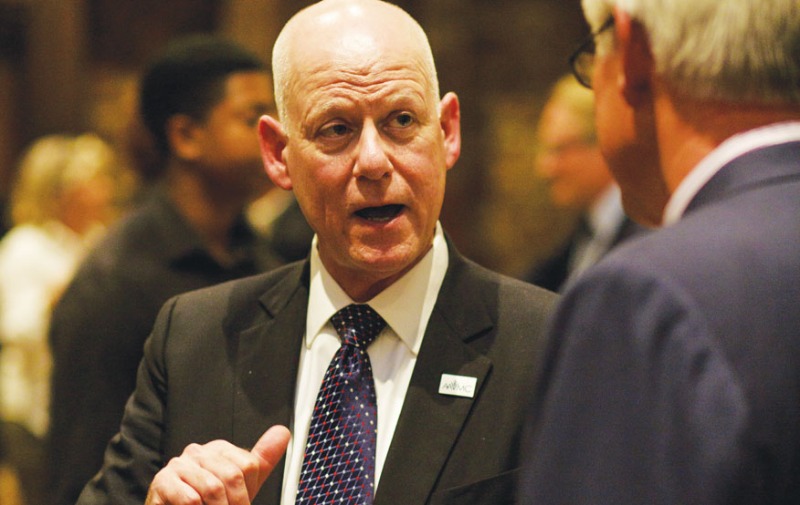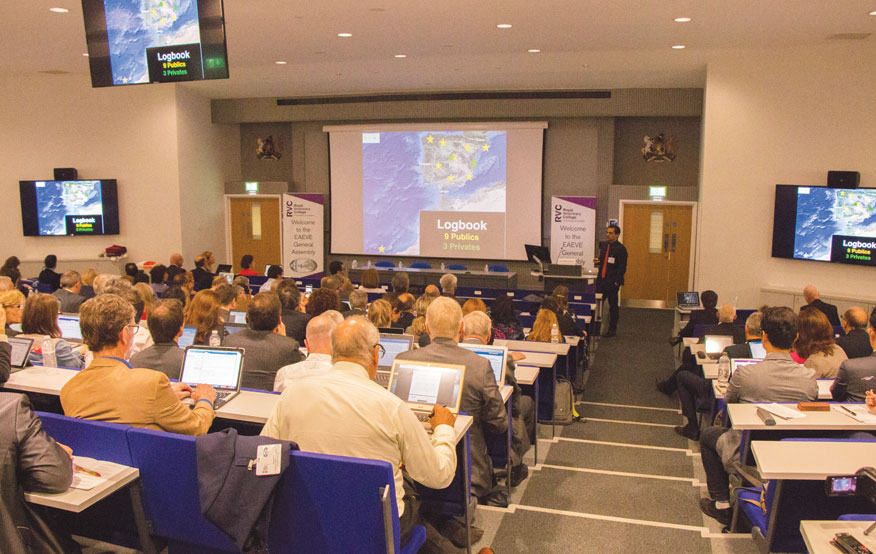The Future of the Veterinary Profession
Clinical Connections – Summer 2017
The RVC recently hosted the 30th General Assembly of the European Association of Establishments for Veterinary Education (EAEVE), the Europe-wide accreditation authority.
It was the first time that the RVC had hosted the EAEVE event, which welcomed over 200 senior veterinary academics and regulatory officials from around the world. The event was held on 18th and 19th of May.
The first day was the Annual General Assembly meeting and second day of the event was an Educational Symposium, which focused on competency-based training. There was much discussion of the future of the veterinary profession in the context of technological change.

In a session about what it takes to make a veterinarian, Andrew Maccabe, CEO of the Association of American Veterinary Medical Colleges, asserted that the social contract between the profession and the public cannot be taken for granted. He said: “Why are the competencies important? Why should we deal with them? Well, it has to do with the social contract. Societies have given to the professions leeway in self-regulating and controlling themselves in return for the special expertise that we have. And so our professions, including veterinary medicine, have an obligation to make sure that our members are competent to practise.”
In relation to technology and education, he said: “We are on the verge of a technological revolution, with the growth of computing, computing power and memory and that will unlock the next true innovation in teaching with the advent of virtual reality and artificial intelligence… basically we are faced with two pathways – a dystopian future and a utopian future. The dystopian future would be if technology gets out of hand and we end up with this sort of completely artificial intelligence-reliant teaching where there is no direct feedback. But a more utopian view would allow us to embrace the changes that are coming.”
Outlining his more dystopian vision for the profession, he added: “Will society continue to grant us that special exception and that special status as professionals? The fact is no – they may not need or want those services delivered in the same way that we were delivering them in the 19th and 20th Centuries. In the 21st Century they will want much more direct consumer access by internet access and those sort of things.”
In response, RVC Deputy Principal Professor Stephen May said: “It seems to me that there are two fundamentally opposing views of where we are going in the future. One is your rather depressing dystopian one, which is computers will overtake us in terms of reasoning and, for a little while, we’ll be technicians and then eventually robots will come along and man will be irrelevant. But actually, if you go back a period, 15 years ago [author and workplace expert] Bruce Tulgan was talking about judgement being the killer application of the human brain. As people are looking more and more into artificial intelligence, there is a lot of interest in the way it complements some of the human abilities that haven’t been replicated, rather than replaces them.
“It does seem to me that there are lessons in some of the work we have done around technical skills. We are getting better and better at developing these. We can also evaluate knowledge well – we have been able to do so for a while. We are getting better and better at evaluating skills of individuals in a reductionist way, and therefore our students as ‘knowledgeable technicians’. But what that has exposed for us is that the ultimate professional competences are the ability to handle messy complexity and to handle the human world.”

Liz Armitage-Chan, Senior Lecturer in Veterinary Education, also spoke at the event. In a presentation entitled ‘What are the Professional Competencies?’ she discussed how her work developing the RVC veterinary curriculum was informed by researching the professional identities of experienced and inexperienced vets. Each group identified complex decision-making, incorporating the client’s needs, those of the business and clinical priorities, as being important to them.
Ms Armitage-Chan said: “We aim to support our students in feeling confident and competent at professional problem-solving - placing their skills in clinical reasoning alongside those necessary for wider decision-making.”
One of the RVC programmes Ms Armitage-Chan is involved with is the MSc in Veterinary Education, a unique part-time course designed to promote excellence in the field of veterinary education.
Sign up to get Clinical Connections in your inbox rvc.ac.uk/clinical-connections
